Agatha Christie artefacts at Cambridge University crime novel exhibition
- Published
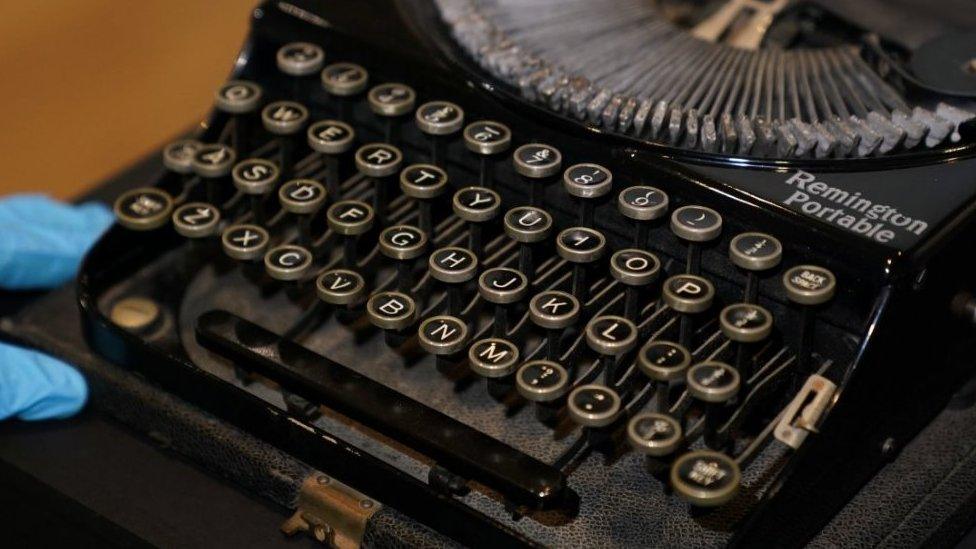
Agatha Christie's 1937 Remington portable typewriter has been loaned to the university for the exhibition
Crime novelist Agatha Christie's typewriter and Dictaphone are among items on show in a new exhibition celebrating the literary genre.
Christie's 1937 Remington portable typewriter together with the typescript for her last Poirot novel can be seen at Cambridge University Library.
Various first editions from other famous novelists are also on show.
Murder by the Book: A celebration of 20th Century British Crime Fiction is on until 24 August.
The university said one of the "star exhibits" is the typescript of her final Poirot novel, Curtain, which was so top secret it was kept in a bank vault for three decades until its eventual publication in 1975, the year before Christie's death.
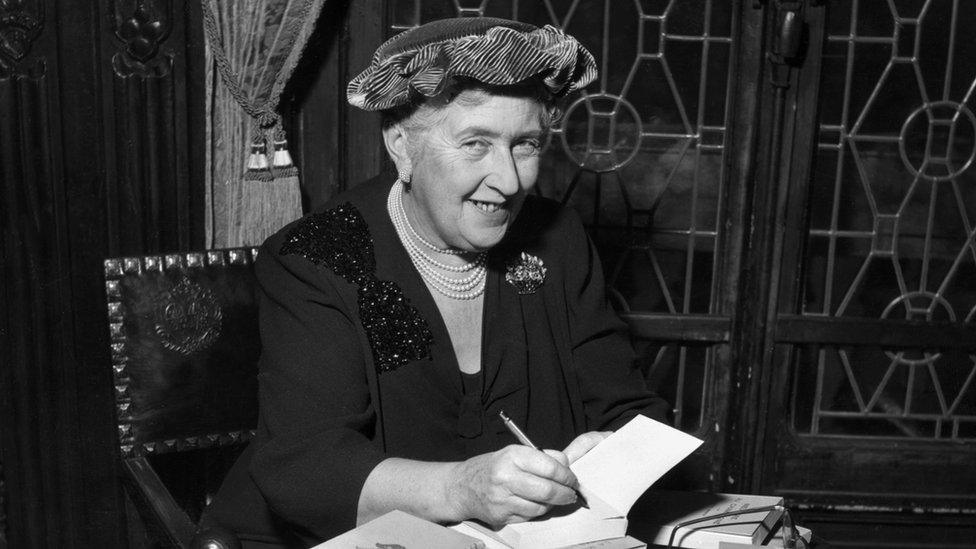
Many of Dame Agatha Christie's novels have been turned into films
In this book she finally revealed the death of detective Hercule Poirot - an event so culturally significant, his demise was covered in a front page New York Times mock obituary, external.
The Christie artefacts have been loaned by the Christie Archive Trust, external, and include her draft notebooks from the writing of Curtain and Witness for the Prosecution.
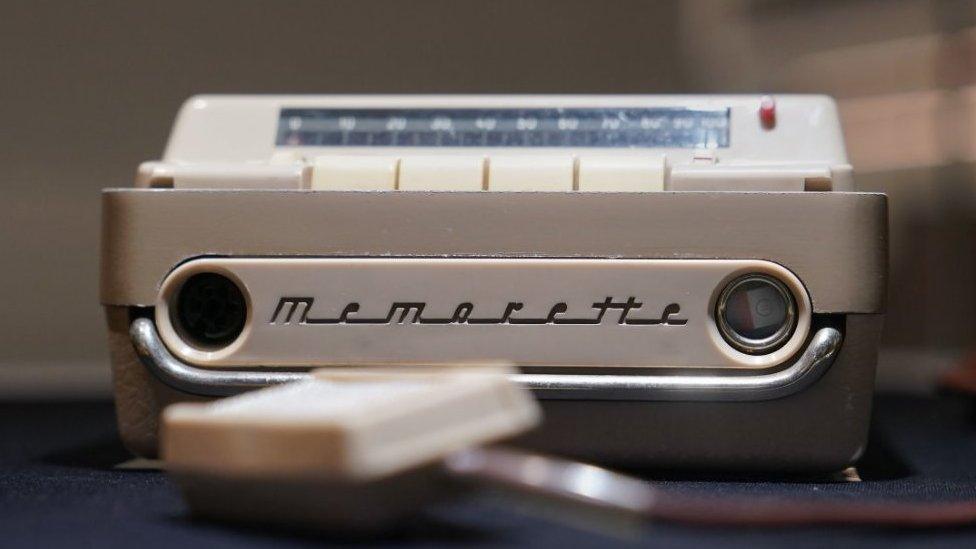
Agatha Christie's 1959 Grundig Memorette portable dictating machine and microphone are on show
Dame Agatha Christie, who died in 1976 aged 85, wrote 66 detective novels, 14 short story collections and more than 20 plays.
The exhibition also features Victorian novelist Wilkie Collins' writing desk, as well as the library's first edition copy of his seminal 1868 work The Moonstone.
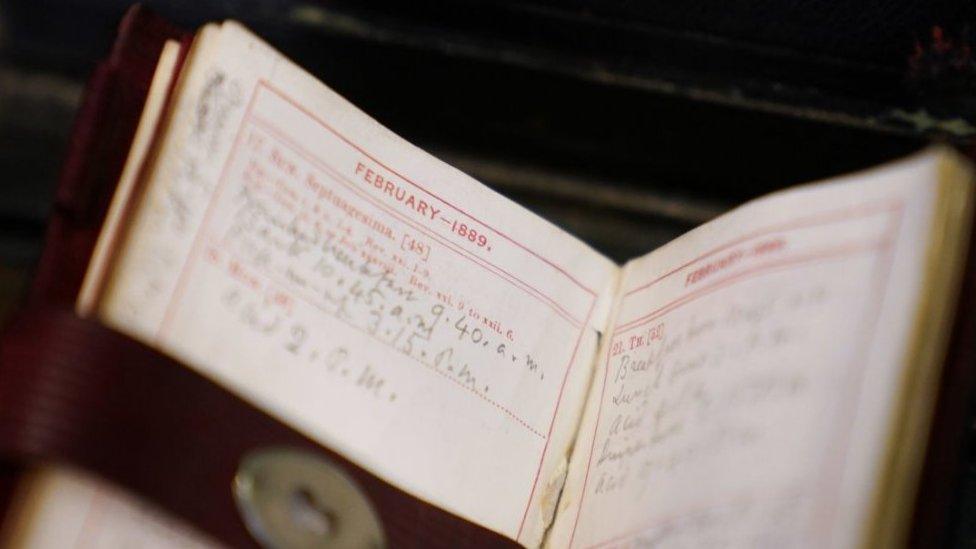
The is the last diary belonging to Wilkie Collins, in his travelling writing desk
In addition, almost 100 of the most famous, influential and best-selling crime novels in UK history, and other works that are now long out of print will be on show.
The vast majority of these novels are drawn from the library's own collection of first editions in their original dust jackets.
First editions going on display range from the earliest British crime fiction of Sir Arthur Conan Doyle, Charles Felix and Wilkie Collins - to some of the 20th and 21st Century's most recognisable authors.
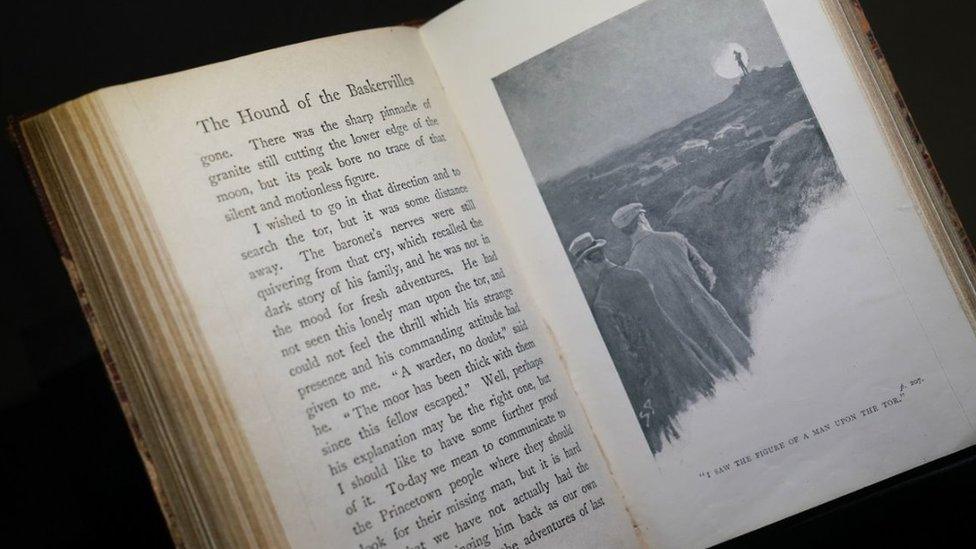
A first edition of The Hound of the Baskervilles by Arthur Conan Doyle
Crime novelist and exhibition curator Nicola Upson, said: "This exhibition is a glorious selection of the novels that have influenced the genre and made household names of Sherlock Holmes, Miss Marple, Jane Tennison and Inspector Morse.
"We look at the brilliant ideas, atmospheric settings, vivid characters, the dark and dangerous themes - and those perfect, unguessable endings.
"There are books in the exhibition which have pioneered the genre."
The exhibition, external and events programme has been supported using public funding by Arts Council England.

Follow East of England news on Facebook, external, Instagram, external and X, external. Got a story? Email eastofenglandnews@bbc.co.uk, external or WhatsApp 0800 169 1830
Related topics
- Published13 January 2024
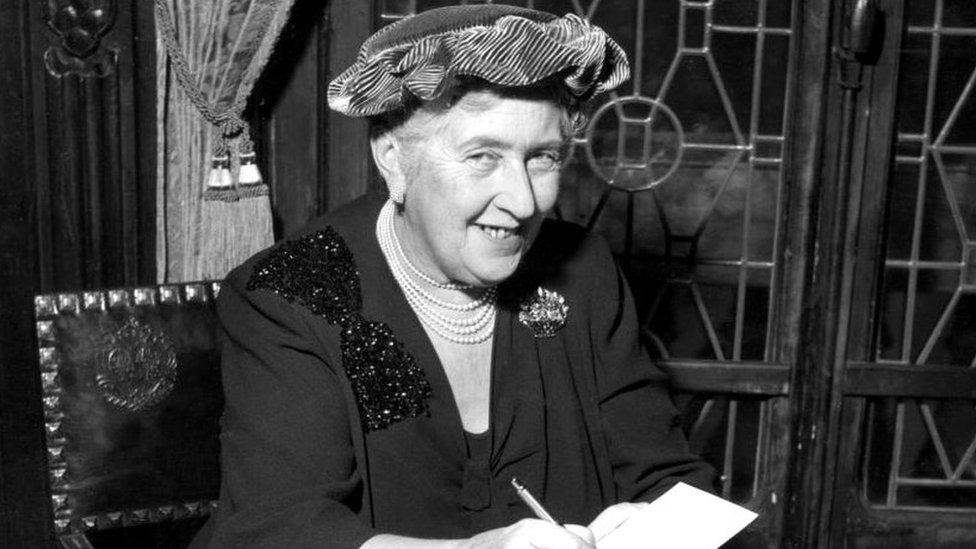
- Published1 November 2023
